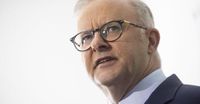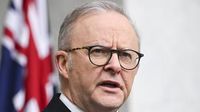On Saturday, August 9, 2025, the usually bustling steps of Dandenong Market in Melbourne’s southeast became the stage for a passionate pro-Palestine demonstration. More than 200 people—kids waving banners, elderly couples, families, and activists—gathered to demand that the Australian government impose sanctions on Israel and formally recognise Palestinian statehood. The group, organized by Free Palestine Dandenong, wasn’t content to just stand and shout; they marched to the office of Bruce MP Julian Hill at Harmony Square, then doubled back to the market, their placards reading messages like “Stop Genocide,” “Stop Israel Now,” and “End the Occupation.” Victoria Police kept a watchful eye, but the protest remained peaceful, with no arrests or incidents reported, according to Victoria Police.
In the crowd, speakers shared harrowing tales. Leyan, a young Palestinian survivor, spoke of enduring Israeli assaults in Gaza, her story a stark reminder of the human cost of the ongoing conflict. Dr. Mohammad Mainul Khan, a rural generalist medical practitioner who had recently volunteered in one of Gaza’s few remaining hospitals, described conditions on the ground: makeshift surgeries, dwindling supplies, and the constant threat of violence. Their testimonies were echoed by Sean Stebbings, a representative of the Victorian Socialists political party, who did not mince words. “Israel’s genocide in Gaza has been one of the defining political issues of recent years. We have been shocked by scenes of men, women and children being bombed to oblivion for 21 months, with well over 60,000 people killed so far,” Stebbings said, according to Star Journal. “Those lucky enough to survive have been sent on repeated forced marches through the rubble, faced artificial famines imposed by the Israelis, and being operated on without anaesthetics. These atrocities, and many more, are a searing indictment on the international capitalist system, where countries and corporations thrive on war and destruction.”
Stebbings, like many at the protest, laid blame not only at Israel’s feet but also at those of its allies. “We particularly blame the US and its allies, including Australia, who continue to back Israel despite its well-documented war crimes. Approaching two years into Israel’s genocide in Gaza, it’s heartening to see our community stand for peace and justice,” he said. The call was clear: end all political, military, and economic ties with Israel, and impose sanctions on Israeli institutions and figures.
Just two days after the rally, the protestors’ demands seemed to echo in the halls of power. On Monday, August 11, 2025, Prime Minister Anthony Albanese announced that Australia would officially recognise Palestinian statehood at the United Nations General Assembly in New York next month. The move, Albanese said, was motivated by a desire for a two-state solution, an immediate ceasefire in Gaza, and the release of hostages. But it wasn’t a blank check. The recognition, he explained, was conditional: Palestine would need to be demilitarised, hold free and fair elections, and—crucially—ensure that Hamas played no role in its governance. “Hamas is a terrorist organisation. It has no role to play,” Albanese told Today. “Hamas is opposed to two states. This is the opposite of what Hamas wants. Hamas wants one state. And some, unfortunately, in the extreme elements of the Israeli Government want one state too. And when you have two people and hatred being fostered and essentially a military solution being put forward and no political solution, well, that's just an approach that will see this violence just continue to go on and on.”
Despite those conditions, the reaction from Hamas was swift and celebratory. According to The Sydney Morning Herald and The Age, Hamas co-founder Sheikh Hassan Yousef released a statement welcoming Australia’s decision. “We welcome Australia’s decision to recognise the state of Palestine, and consider it an important step towards achieving justice for our people and securing their legitimate rights,” Yousef said. He called the move “political courage and a commitment to the values of justice and the right of peoples to self-determination.” But Yousef didn’t stop there—he claimed that Australia’s decision vindicated Hamas’ actions, including the October 7, 2023 attacks that killed more than 1,200 Israelis and triggered the current war in Gaza. “These operations have drawn global attention to the Palestinian cause and compelled many countries and organisations to reconsider their positions, leading to greater support and recognition of Palestine as a state by some countries,” he asserted. “Resistance has proven to be an effective means to break the siege and bring the Palestinian cause back to the international discussion table.”
This praise from Hamas sparked a political firestorm back in Australia. Coalition Shadow Foreign Minister Michaelia Cash was quick to condemn the government’s move. “All Australians should be appalled at the massive propaganda victory Mr Albanese has handed Hamas on a platter,” Cash said, as reported by ABC News. “This is a sad day for our nation. Mr Albanese told Australians Hamas would reject his position to recognise a Palestinian state. When terrorists are cheering Australia's foreign policy it is clear proof it is wrong.” She argued that the recognition had “emboldened” Hamas and repeated that a future Coalition government would revoke the recognition if elected.
Opposition Leader Sussan Ley echoed these criticisms, arguing that the Prime Minister was “out of his depth.” “The prime minister said that the reason for his decision was because Hamas would not support it. And that is clearly turned completely upside down today, with the Hamas co-founder praising our prime minister for this decision,” Ley said. “Prime minister, if you’ve got a listed terrorist organisation cheering on your foreign policy, it might be time to admit that you got it wrong.”
Other voices in Parliament took a more nuanced view. Independent MP Allegra Spender said the recognition should be seen as a step toward a two-state solution and lasting peace. “I think what we should be doing is putting pressure on Hamas and its allies and its backers and on Israel to bring the war to a conclusion, to get the hostages home, which is absolutely critical,” Spender told ABC News. She also noted the significance of the Arab League and Palestinian Authority rejecting Hamas’ actions and reaffirming their commitment to a State of Israel.
Employment Minister Amanda Rishworth tried to refocus the debate, arguing that Hamas would use any development as propaganda. “They are a terrorist organisation. What I would say is the work the international community has done has been very clear that this move is about excluding Hamas from the process, about sidelining and excluding them from the process,” Rishworth said. She stressed that the government’s intent was to ensure Hamas would have no role in the governance of a future Palestinian state.
The international context has only heightened the stakes. According to Reuters and 9News, more than 60,000 people—many of them women and children—have died in Gaza since Israel’s offensive began, a figure cited by Gaza’s Ministry of Health. The humanitarian crisis has reached “unimaginable levels,” prompting Australia, Britain, Canada, and several European allies to call on Israel to allow unrestricted aid into the enclave. New Zealand’s Prime Minister Christopher Luxon didn’t mince words either, saying Israeli Prime Minister Benjamin Netanyahu had “lost the plot” and describing the latest attacks on Gaza City as “utterly, utterly unacceptable.”
As the debate rages on, the Australian government finds itself caught between passionate protesters at home, fierce political opposition, and a rapidly shifting international landscape. The coming weeks—especially with the United Nations General Assembly on the horizon—will reveal whether Australia’s move marks a turning point for Palestinian statehood or merely another chapter in a decades-long conflict.


